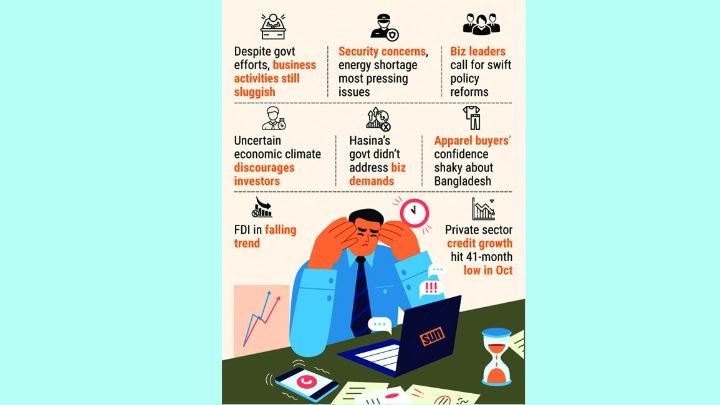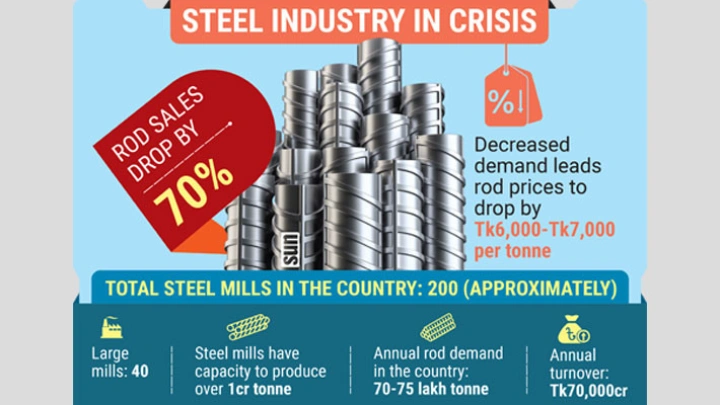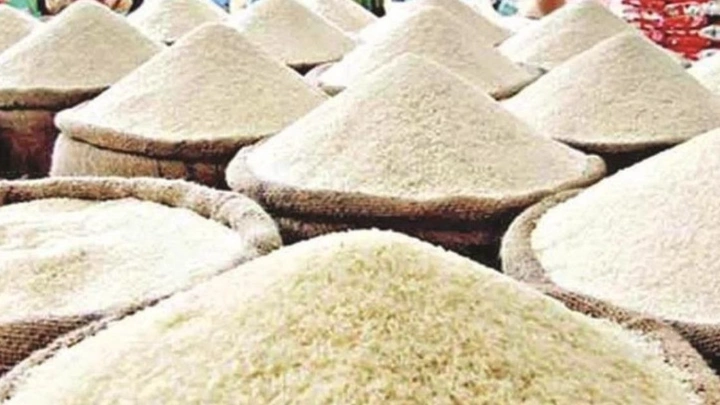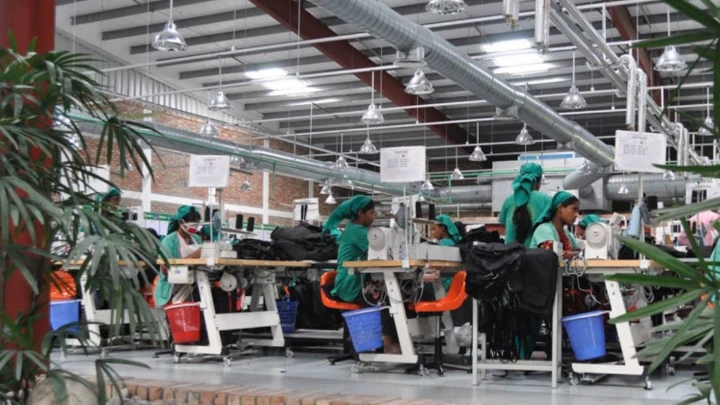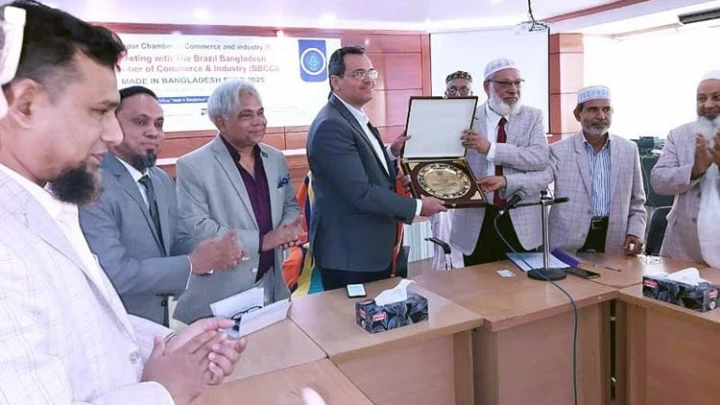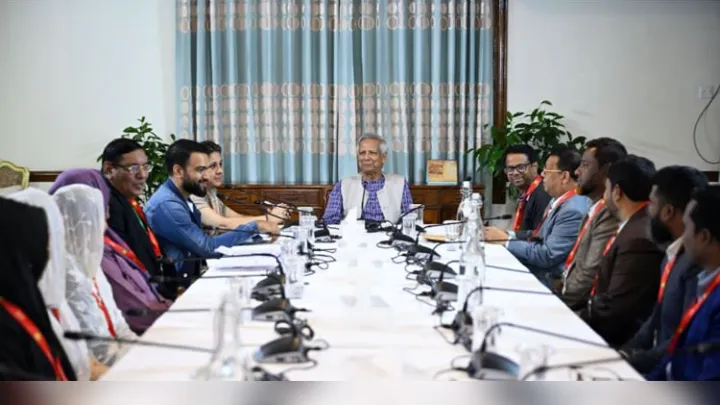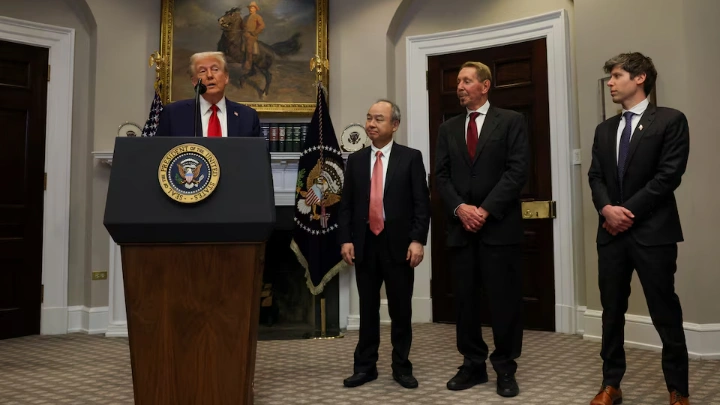Uncertainty shrouds business recovery
DailySun || Shining BD
The interim government, led by Prof Muhammad Yunus, has relentlessly been working to improve the country’s law and order situation to create a more congenial business climate and lure investments since its takeover in early August.
Businesses and experts, however, claim that the progress has still been sluggish, with both trade and investment moving at a tepid pace due to unresolved issues.
A significant concern for the industrial sector remains the energy supply, as prolonged disruptions hinder production.
Business leaders have called for comprehensive policy reforms to eliminate corruption, simplify tax and other bureaucratic procedures, and enhance the ease of doing business to make the country more competitive globally.
Many experts argue that the country’s uncertain economic climate discourages both local and foreign investments, while driving international buyers to explore alternative markets.
High energy costs cripple industries
Former vice president of the Federation of Bangladesh Chambers of Commerce and Industry (FBCCI), Abul Kashem Haider, told the Daily Sun that economic activity remains sluggish due to the interim government’s slow progress.
“We need swift reforms in the business sector to keep the economy moving. Currently, foreign direct investment (FDI) is negligible, and unemployment is rising, which is alarming. Ensuring law and order is crucial to building investor confidence,” he stated.
Haider criticised the former government led by Sheikh Hasina for failing to address the demands of the business community over the past 16 years. He emphasised that rising energy costs are crippling industries, demanding a 50% reduction in energy prices to sustain the manufacturing sector.
He also urged the FBCCI administrator to hold its elections promptly to establish an elected board of directors, which can effectively communicate the demands of the business community to the interim government. “We appreciate the interim government for bringing discipline to the banking sector, but high-interest rates must also be reduced to support businesses,” he added.
Ashraf Ahmed, president of the Dhaka Chamber of Commerce & Industry (DCCI), highlighted the quadrupled energy consumption over the past two decades, reaching nearly 45 million tonnes of oil equivalent (TOE).
To meet the growing energy demand in the industrial sector, he stressed the importance of boosting local production and imports.
“We must focus on increasing our capacity to utilise energy efficiently. Despite challenges in domestic coal extraction, the process must be enhanced to address the country’s energy needs,” Ahmed told the Daily Sun.
RMG buyers demand 100% security
Talking to this newspaper, Bangladesh Garment Manufacturers and Exporters Association’s (BGMEA) former director Mohiuddin Rubel emphasised the need for enhanced law and order as well as a steady energy supply to sustain the country’s apparel sector.
“Our major challenges now are law and order and energy supply. During the July-August uprising, the country’s law and order situation dropped to a ‘zero level.’ While the interim government has improved it significantly, it still does not meet the expectations of the business community. We need 100% security to ensure a conducive environment for business and investment,” he stated.
Rubel highlighted that Bangladesh aims to achieve $100 billion in garment exports by 2030 but is struggling to provide sufficient energy to industrial units, even while exporting $47 billion worth of apparel annually.
“How can we achieve $100 billion in exports if we cannot ensure enough energy supply? The government must urgently address these pressing issues to secure the country’s economic future,” he added.
He also expressed optimism about the neutral government led by Prof Yunus, stating, “Our expectations are high. All necessary reforms must be implemented to improve the ease of doing business in the country. Global buyers demand full security; otherwise, they will shift to other countries. Both local and foreign investors are monitoring the business environment closely. Everyone wants 100% security and economic stability.”
According to the Export Promotion Bureau, Bangladesh exported goods worth $55.56 billion in the fiscal year 2023-24, with the RMG sector contributing $47 billion. Despite this success, the industry faces several challenges.
M Salauddin Chowdhury, chairman of Stylish Garments Ltd, said, “The interim government has been in power since 8 August, and since then, we have faced significant challenges, particularly in the RMG sector.”
“Security concerns have been our primary issue, with incidents such as workers’ protests, outsider attacks, and the spread of rumors causing disruptions. This has been one of the most challenging periods for businesses. The situation, however, has improved, and we hope to gain full control of our industries with the support of law enforcement agencies,” he stated.
Chowdhury acknowledged the vital role of law enforcement in ensuring security and called for urgent policy support to stabilise the economy.
“Many industries are struggling to operate under these conditions. Bangladesh is resilient, and we will overcome these challenges, InShaAllah. But immediate policy support is crucial to protect the economy and employment. Security remains our top priority, followed by the need for energy, banking, and other government support,” he added.
The RMG sector’s resilience and adaptability would be critical as Bangladesh seeks to navigate these challenges and secure its position as a global leader in apparel exports, industry experts believe.
Poor FDI impacts employment, economy
The country’s private sector credit growth dropped to 8.30% in October this year, marking its lowest point in 41 months, according to Bangladesh Bank data.
The central bank also revealed that Bangladesh received $3.004 billion in foreign direct investment (FDI) in 2023, a 14% decline from $3.5 billion in 2022.
A Gafur, director of Abdul Monem Economic Zone Ltd, highlighted that Bangladesh’s $3 billion FDI in 2023 pales in comparison to Malaysia’s $18 billion.
He attributed this disparity to policy inconsistency, political instability, and inefficiencies within the National Board of Revenue (NBR) and the One-Stop Service (OSS).
Gafur urged authorities to address these barriers to improve FDI inflows.
Zaved Akhtar, president of the Foreign Investors’ Chamber of Commerce and Industry (FICCI), underscored the importance of credibility, policy consistency, and competence in attracting FDI. He emphasised that fostering partnerships is critical for boosting both FDI and economic growth.
Economists for measures to curb unrest
Economists believe that controlling disruptions caused by protests is crucial for economic stability and business confidence.
Dr M Masrur Reaz, chairman of Policy Exchange Bangladesh, noted positive signs in exports and remittances over the past four months.
He, however, expressed concerns about protests in government offices, educational institutions, and on roads, which disrupt supply chains and erode confidence among local and international investors.
“Despite a reduction in violence since 5 August, frequent unrest continues to create a lack of confidence in the business community. Addressing these disruptions must be prioritised,” Dr Masrur stated.
During a recent event, Commerce Adviser Sk Bashir Uddin stressed the need for stronger collaboration between the private sector and the government to improve law and order.
He expressed optimism about resolving the current challenges.
Bashir Uddin, who is also the managing director of Akij Bashir Group, highlighted the importance of capacity building to expand Bangladesh’s trade in the international market, especially during the post-LDC transition period.
“A well-thought-out timeline for LDC graduation is necessary, as the country will lose certain incentives and advantages after the graduation,” he noted.
Bashir Uddin emphasised the need for improved trade liberalisation and policies to support business sub-sectors.
“Strengthening connectivity is crucial for enhancing competitiveness. Bangladesh should capitalise on its potential as envisioned by the WTO, which sees the country as a special model in South Asia,” he stated.
Shining BD

